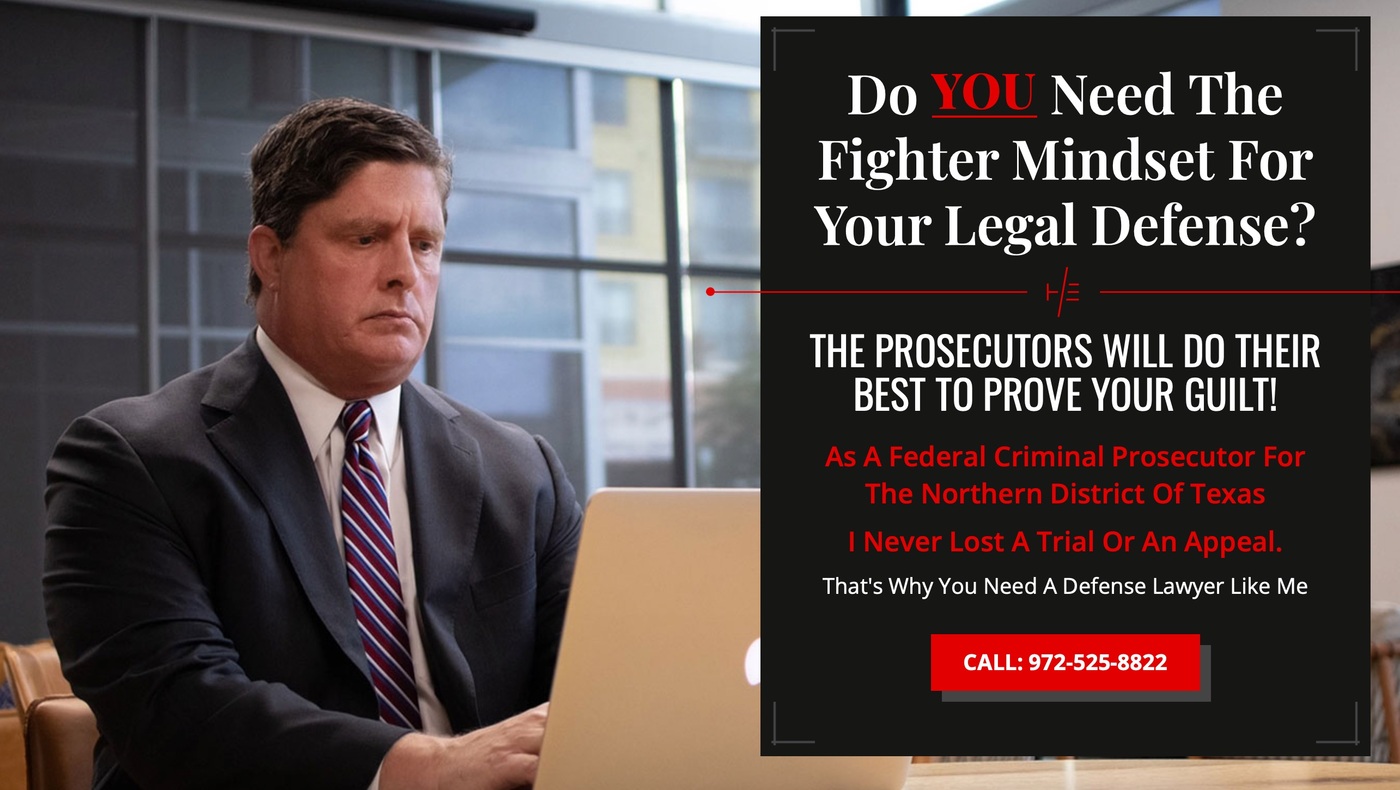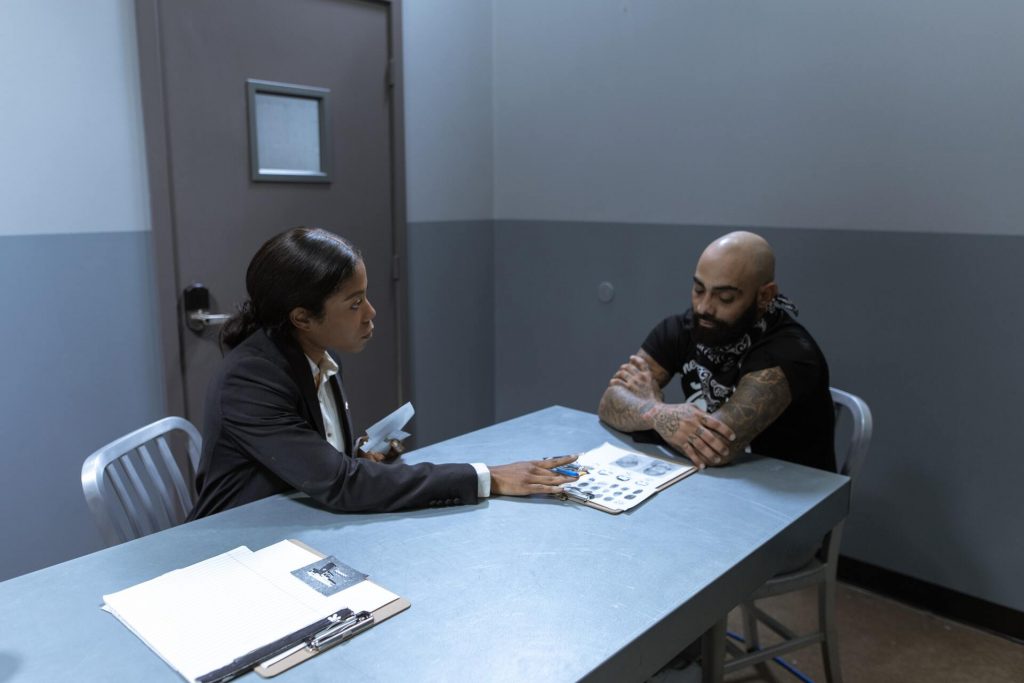Dallas, TX, USA, 04/02/2021 / Dallas Criminal Defense Lawyer – Law Office of John M. Helms /

Why You Should Never Try to Bargain With the Police
The police rely on numerous strategies to get people to admit when they’ve committed a crime. If you’re stopped by the police, it’s absolutely critical to know your rights.
When people are uninformed about their legal rights, they can end up admitting things that could hurt their case later on. In the worst cases, people even confess to things they didn’t do.
In fact, false confessions due to police interrogation techniques happen more often than many people realize. According to the National Registry of Exonerations, which has collected data on more than 1,800 exonerations since 1989, there were 227 false confessions among that group. Many of these are the result of aggressive police interrogations.
What to Know About Police Interrogations
The word “interrogation” usually makes people think of small, claustrophobic rooms and police officers hovering over a sweating suspect, yelling at them to tell everything they know.
While this scenario is, unfortunately, a reality in some cases, police interrogations can take many forms. In certain situations, the police may conduct an interrogation of an individual while standing on the side of the road during a routine traffic stop. While the person they stopped might not realize they’re involved in a police interrogation, the police certainly do.
If the police start to ask you questions, it’s important to understand that police generally ask questions when they’re trying to get someone to confess to a crime. Aside from giving them your basic identifying information, you have the right to and should decline to answer any questions until you have an opportunity to talk to a lawyer.
The Reid Interrogation Technique
Police officers are trained in interrogation techniques, and many learn more than one way to question suspects.
The Reid Technique is the most widely used approach for police interrogation techniques. It’s also been around since the 1940s, which means the majority of law enforcement officers are familiar with it.
Another common term for the Reid technique is the “good cop, bad cop” style of interrogation. When officers use this technique, they tend to work in pairs. One officer takes on the role of the “good cop” and attempts to befriend the subject and put them at ease. The other officer plays the “bad cop” by pressuring the subject to confess and may even making threatening statements in an attempt to further pressure the subject.
Reid techniques vary in practice, but they tend to feature three elements:
-
Isolation – The police usually try to get the suspect alone in a sparsely furnished room. Cut off from any family or friends and isolated in a room with very little stimulation, most people start to feel claustrophobic and anxious. The police may even deny the person food or water, which can cause further psychological and physical distress.
-
Maximization – In many cases, the bad cop will start the interrogation by declaring that the subject is guilty and that the police can prove it. The officer might even lay out a case, which can make the subject believe the police have evidence to back up the bad cop’s assertions. During this part of the interrogation, the officer playing the role of bad cop may try and make the subject feel like they’re wasting their time by failing to confess.
-
Minimization – Once the bad cop is finished, the good cop will move in and reassure the subject. After being frightened and bullied by the bad cop, many people will view the good cop as reliable and trustworthy. The good cop might promise the subject a lighter sentence or a more lenient sentence if the subject confesses.
In reality, the good cop and bad cop roles are just pretenses. Police officers who excel at the Reid technique can often compel suspects and witnesses to divulge information they otherwise wouldn’t if they had a lawyer present.
The Police Can Lie to You
Many people are shocked to learn that the police don’t have to be truthful when interrogating someone. There is no law that requires police officers to tell the truth when they are questioning someone.
In fact, lying is a common method of interrogation used by police officers. While the police are generally prohibited from making threatening comments, such as telling someone they will go to prison for life if they don’t confess, the line between what is permissible and what is prohibited isn’t always clear.
Unfortunately, the police can and do lie to people in an attempt to get them to confess to crimes. It is also the reason why it’s never a good idea to attempt to bargain or negotiate with police officers. Leave the negotiations to an experienced Texas criminal defense lawyer who has years of practice.
If you have been interrogated by the police and confessed to a crime you didn’t commit, it’s important to discuss your case with an experienced Texas criminal defense lawyer. There are ways to defend yourself from false confession. Protect your rights by speaking to a knowledgeable criminal defense lawyer today at the Law Office of John M. Helms in Dallas.
Texas Criminal Defense Lawyer John Helms
Other Resources:
Can the Police Search My Car If I’m Pulled Over for DWI?
Dallas Drug Lawyer Explains How To Protect Yourself From Unreliable Field Tests
Media contact:
R. William
Tel: (214) 666-8010
Sources:
-
https://www.themarshallproject.org/2017/03/07/the-seismic-change-in-police-interrogations
-
https://www.law.umich.edu/special/exoneration/Pages/False-Confessions-.aspx
Source: John Helms
Release ID: 17596
Content Disclaimer: The information does not constitute advice or an offer to buy. Any purchase made from the above press release is made at your own risk. Consult an expert advisor/health professional before any such purchase. Any purchase made from this link is subject to the final terms and conditions of the website’s selling as mentioned in the above as source. The content publisher and its downstream distribution partners do not take any responsibility directly or indirectly. If you have any complaints or copyright issues related to this article, kindly contact the company this news is about.







